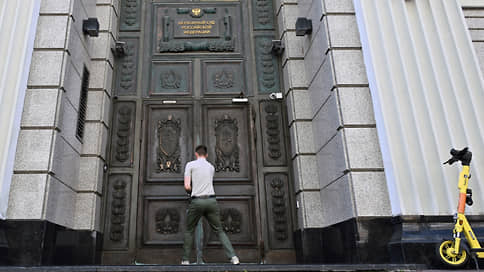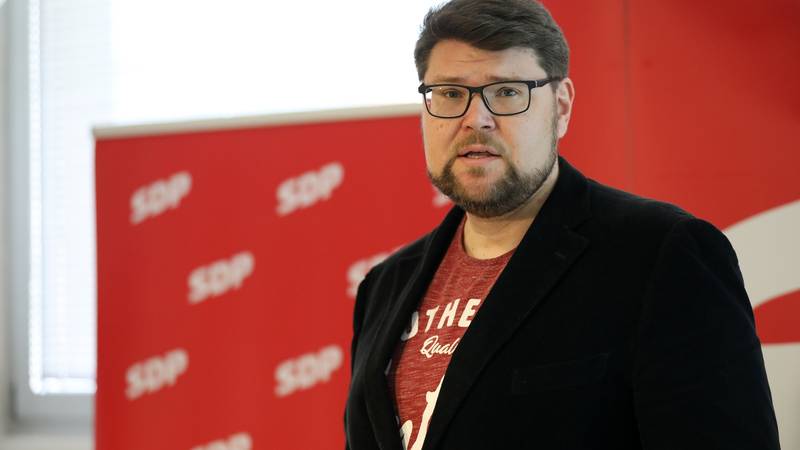The aircraft will consider the claim for the payment of interest for failure to fulfill the court order by the bank

The Supreme Court of the Russian Federation (Sun) will decide whether the bank will pay for the refusal to comply with the court order to transfer money from the client’s account. The bank referred to the restrictions on anti -wasching legislation and the attributing of the debtor to the group potentially suspicious. The arbitration courts recognized the bank’s inaction illegal, obliged to transfer money to the claimant under a judicial act. The issue of the legitimacy of accrual also interest for temporary use by these funds will be considered by the Economic College of the Armed Forces.
In the case, referred to the highest instance, we are talking about the court order – such an act is issued by the arbitration court without the presence of the parties to simple disputes up to 750 thousand rubles. and canceled in the case of any objection of the debtor. At the same time, the court order is equal to the executive sheets, so the position of the economy of the aircraft will be relevant for all cases of enforcement of judicial acts.
Abral, « Lincoln »
The history of the proceedings began in December 2022, when the Moscow Arbitration Court issued a court order to recover 408.8 thousand rubles from IP Fedotov from LLC Lincoln. In July 2023, the Lincoln founders decided to liquidate the LLC. Upon learning of this, the entrepreneur appealed to the liquidator with the executive document, and he sent a court order to VTB. But the bank did not write off the LLC account, explaining this by restrictions on the Law “On Combating Laundering (Legalization) of Cash” (115-FZ).
The fact is that the Central Bank assigned the “Lincoln” to the group of organizations that with a high degree of risk perform suspicious operations. According to the law, this implies the imposition of restrictions on transfers from the accounts of such a company, although 115-ФЗ allows the write-off of money after the exclusion of a “suspicious person” from the Unified State Register of Legal Entities. However, Lincoln was liquidated later, in March 2024.
IP challenged VTB inaction in the Moscow Arbitration Court, demanding that the defendant obligate the court order, as well as recover interests from the bank for the use of other people’s funds under Art. 395 of the Civil Code of the Russian Federation and a penalty in the amount of 4.1 thousand rubles. For each day of non -fulfillment of the court decision.
Interest for the use of other people’s money is a measure of responsibility for non -fulfillment of a monetary obligation and are determined at the key rate of the Central Bank. At the same time, the judicial penalty is designed to stimulate the losing side to execute the court decision as soon as possible under the threat of accruing a fine in favor of the plaintiff. The size is determined by the court. At the same time, regulation and practice allow you to recover from the defendant both interest and the judicial penalty.
In April 2024, the first instance supported VTB’s position and rejected the IP lawsuit, recognizing the priority of 115-FZ requirements. The Bank of Russia also held the same opinion at that time. In an information letter dated April 26, 2024, the Central Bank recommended that banks inform bailiffs about the possibility of writing off money from the accounts of “high -risk customers” under executive documents only after the exclusion of these customers from the Unified State Register of Legal Entities.
But the appeal in August 2024 satisfied the claims of the plaintiff, recognizing the inaction of the bank illegal. The court indicated that the legal force of judicial acts cannot be overcome or questioned, and the anti -inspection law cannot cancel the “obligation of strict execution” of court decisions. Recall that the Sun came to similar conclusions in the summer of last year (see “Kommersant” dated 23 July, 2024).
As a result, the appeal concluded that the bank is obliged to carry out the “public functions assigned to it” for the execution of the court order. This decision stood in cassation. The court refused to recover from the bank a penalty and interest.
Alexander Fedotov turned to the Armed Forces, insisting on the need to impose financial sanctions on the bank. In his complaint, he states that untimely execution of a judicial act violates the right to fair justice within a reasonable time, which implies the need to pay compensation. In this case, the credit institution “for a long time did not fulfill the requirements of the judicial act and used the funds to make profits,” says IP, therefore, the interest on the Central Bank’s rate “are the minimum amount of losses caused by the illegal inaction of the bank”. The Armed Forces considered these arguments worthy of attention and transferred the case to the Economy College, the meeting was scheduled for April 16.
Wherever you throw, a fine everywhere
In the VTB press service to the question “Kommersant” about the prevalence of such situations with a refusal to transfer customer funds from a high-risk group responded “without comment”.
The Practice of the Practice of the Disputes Resolution of the ALUMNI PARTNERS legal firm, Ivan Veselov, explains that the presentation of the executive document immediately to the bank, bypassing the bailiffs, allows the claimant to receive funds faster. At the same time, according to the observations of the senior lawyer of the practice of resolving disputes and bankruptcy of the BGP Litigation, Mikhail Osipov, disputes with credit organizations regarding the execution of “they meet quite often”.
132 thousand cases
The bailiffs were excited in 2024 for violations of the legislation on enforcement proceedings
Perhaps the behavior of banks is due to the fact that the penalty for non-fulfillment of the requirements of 115-ФЗ is significantly higher than the sanctions for failure to fulfill the legislation on enforcement proceedings, Mr. Osipov argues. The lawyer clarifies that for the first violation, the fine can be hundreds of millions of rubles, and under Art. 17.14 Administrative Code of the Russian Federation liability of the bank for failure to fulfill the judicial act is limited to 1 million rubles.
Experts express different opinions about which law the norms have priority. Ivan Veselov believes that the advantage of the mandatory execution of judicial acts, as this follows from Art. 70 of the Law « On Enforcement Proceedings ». However, “there are cases of systematic use of court orders to write off the funds of a legal and reasonable type,” so banks may consider the operation of a suspicious one, “taking into account the status of the recipient of funds, for example its presence in black lists,” said Alexei Nekrasov, adviser to the Legicon-Law. In this regard, in his opinion, it should nevertheless be considered priority to the norms of 115-ФЗ, since they relate to special regulation.
At the same time, after recognizing the bank refusal, the recoverer has the right to demand interest for using their money, lawyers say.
They are designed to compensate for the property losses caused by a delay performed by the bank, explains Mikhail Osipov. At the same time, “the trial to protect the violated rights of the claimant takes time, for which the cost of money is significantly reduced,” notes Mr. Nekrasov. In his opinion, non -fulfillment of a court order without any significant grounds “undermines faith in justice”. If the Armed Forces supports the arguments of the claimant, for banks this will entail “the need to revise the current strategy for working with executive documents,” summarizes Mikhail Osipov.








